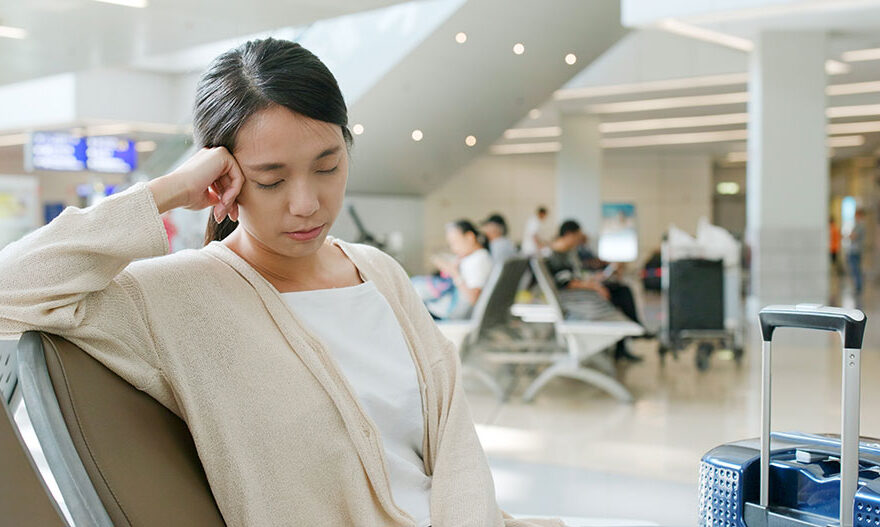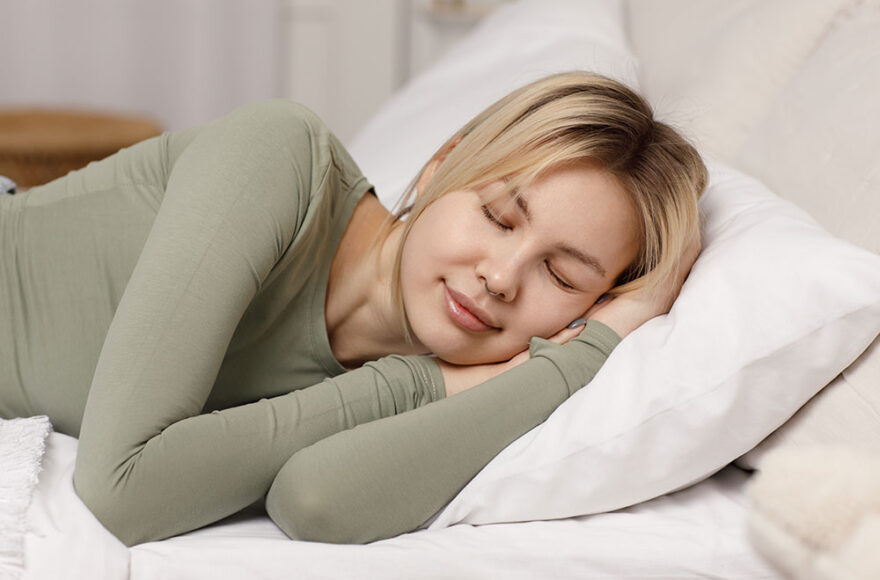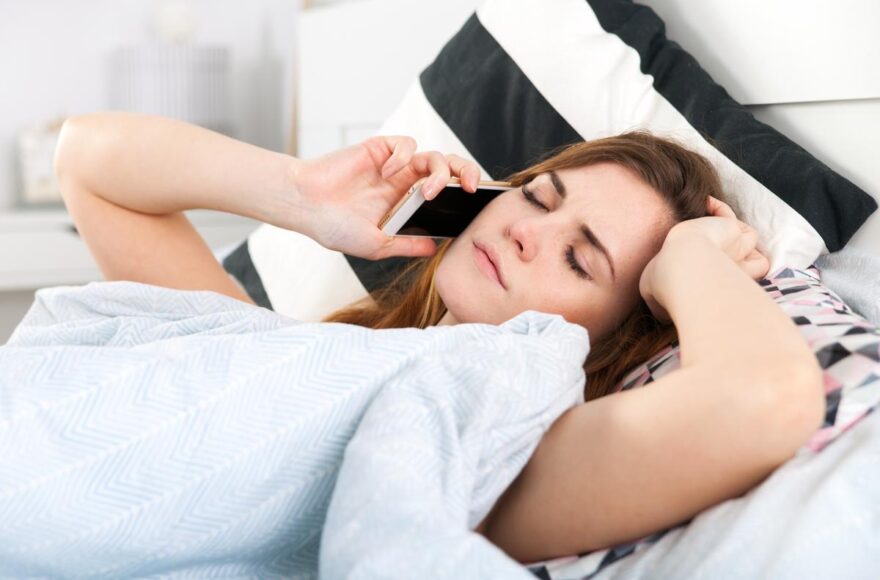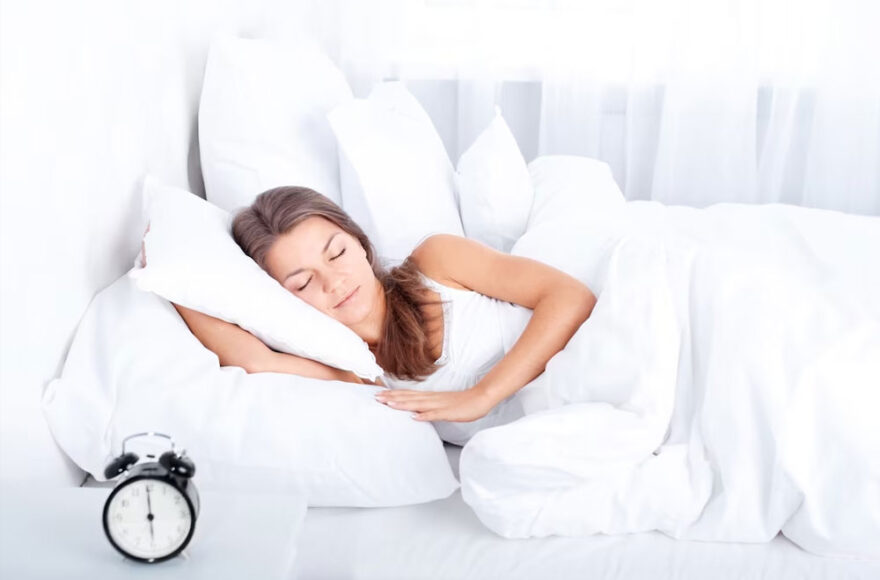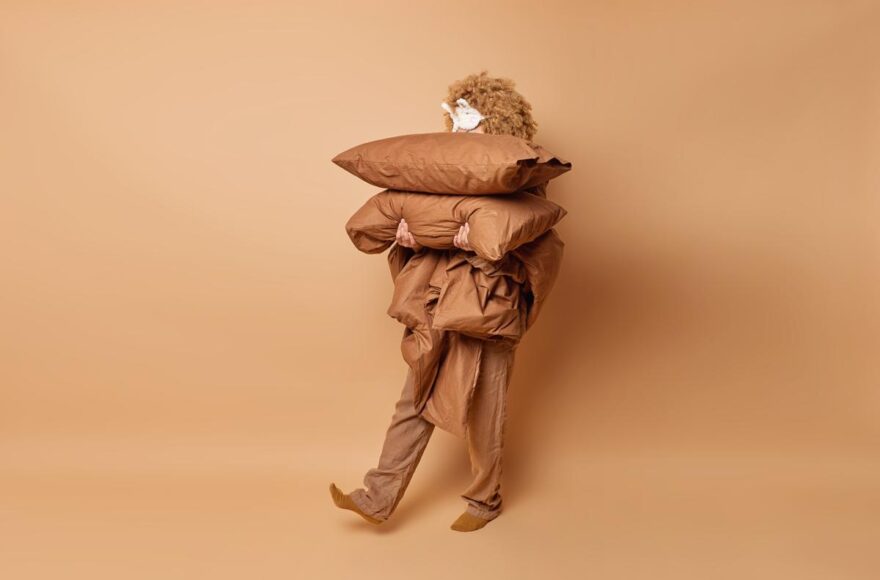How Does Environmental Noise Affect Your Sleep Duration?
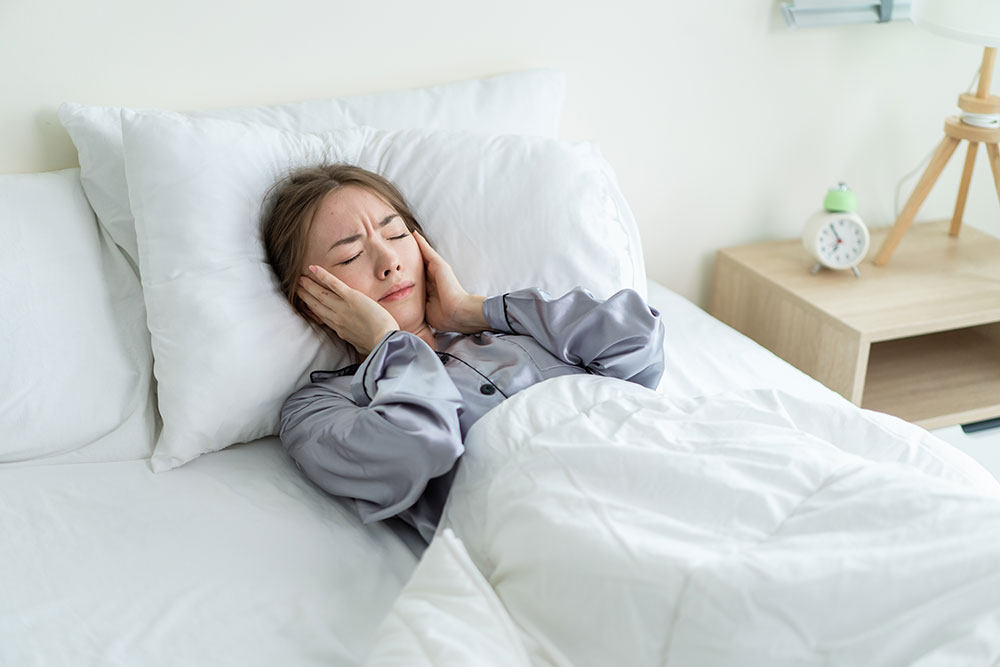
Table of Contents
- Overview
- How Does Environmental Noise Affect Your Sleep Duration?
- What are the Short-Term Effects of Environmental Noise?
- What are the Long-Term Effects of Environmental Noise?
- How to Avoid Environmental Noise When Trying to Sleep?
- Is it Better to Sleep in Silence or with Noise?
- What are the Best Types of Noises to Sleep?
- What Sounds Can Be Used to Sleep Better at Night?
Overview
Environmental noise can have a bad effect on your sleep. You are sleeping peacefully in your room, and a sudden loud voice of noise disturbs your sleep. This could be a car horn or other noise produced during work. The disturbed sleep also affects your health and may cause many health problems in the long run.
Because your body repairs itself during sleep and releases many hormones vital for body functions. If any sleep disturbance happens, it can increase the stress in your body, which leads to health issues. When you sleep every night, your brain transitions to sleep cycle stages. There are four stages of the sleep cycle. Ranging from lighter stages (1 and 2) to deep (slow wave) sleep and rapid eye movement (REM).
But if your sleep is disturbed by environmental noise (air and road traffic), your brain can not pass through the sleep cycle. And it increases the lighter sleep(stage 1) and decreases the deep sleep stage (REM). The deep sleep stage is vital for your body. Because at this stage, your body starts to repair itself and release hormones. Environmental noise can reduce the duration of your sleep.
How Does Environmental Noise Affect Your Sleep Duration?
The environmental noise can affect your sleep in many ways. This sleep disturbance is caused by many things, such as road and air traffic, railways, neighbors, etc. Here are some ways in which environmental noises can affect your sleep
1. Sleep Latency
Sleep latency is when you try hard to fall asleep because of noise. It is an increase in time to fall asleep to the actual onset of sleep.
2. Sleep Fragmentation
Sometimes, you do not wake up fully by the noise, leading to sleep fragmentation. In this, your brain shift between different sleep stages and prevent deep sleep. You can not remember this brief wake-up in the morning.
3. Reduced Sleep Efficiency
It is the ratio of time you are asleep to the time you spend in bed. Noise can reduce this ratio, leading to less sleep despite spending the same time in bed.
4. Decreased REM Sleep
It is a crucial phase for memory consolidation and emotional processing. Environmental noise can decrease the duration of REM sleep(deep sleep).
5. Arousal Response
Sudden or loud noises may produce an arousal response in your body even if you don’t consciously wake up. It is an increased heart rate and a brief burst of brain activity. This response can disrupt the sleep rhythm.
6. Sleep Cycle Disruption
Environmental noise can alter the distribution and duration of other sleep stages. For example, deep slow-wave sleep, which is vital for body repair.
7. After-effects
A night of disturbed sleep can also affect your next day. You may feel daytime sleepiness, less focused, and have a bad mood.
8. Adaptive Response
People who live in the city become more tolerant of environmental noises. They fall asleep no matter how much the noise. But their sleep quality can still be affected.
What are the Short-Term Effects of Environmental Noise?
A full night of undisturbed sleep is vital for feeling good and performing well the next day. If you have a sleep disturbance at night caused by noise. You will feel tired and daytime sleepiness the next morning. It may be difficult for you to do your school or office work. You feel less focused and have a foggy mind. Also, you have a bad mood, which may affect others around you.
What are the Long-Term Effects of Environmental Noise?
As we mentioned above, getting enough sleep is vital for your health. During sleep, your body repairs itself and releases hormones to keep your body healthy. Environmental noise can cause sleep disturbance, which in turn causes many health problems. If you have prolonged noise exposure during sleep, you are at risk of getting health issues, such as:
- Weight gain
- Diabetes Type 2
- High blood pressure
- Heart disease and stroke
- Certain types of cancer
- Increased use of sleep medicines.
- Depression
How to Avoid Environmental Noise When Trying to Sleep?
People who live in the city have to deal with the sounds of traffic, sirens, airplanes, or people walking outside. They are used to this noise pollution and fall asleep. But their sleep duration is somehow less. It is hard to find complete silence, even in suburban or rural settings. You are exposed to noises like noisy appliances, cars, neighbors, and animals during the night.
Also, if you are living with other people, children, or pets, you may have sleep disturbance. They make noises at night, like babies or children crying, which can reduce your sleep duration. Look for which sound affects your sleep and avoid it when trying to sleep. Many ways help to reduce noise pollution at night. Here are some of them:
1. Optimize Your Bedroom Environment
Make your bedroom quiet, clean, and perfect for a good night’s sleep. You can do the following things to practice good sleep hygiene.
Add soft surfaces: Soft surfaces can better absorb the sound reverberates than hard surfaces. Buy some rugs, cushioned furniture, or thick curtains for your bedroom. It helps block or reduce the environmental noise from outside the street and within your house.
Insulate windows: Soundproof windows can reduce or block the loud noises infiltrating your bedroom from the outside. You can also seal any air gaps in the windows you have. It helps to reduce noise exposure and increase your sleep duration.
Reduce appliance noise: If your refrigerator or air conditioner makes a loud noise at night, repair it. And if you are buying a new one, opt for one that is quiet.
Turn off alerts: Before bed, switch your mobiles or tabs on silent mode. So that notifications do not ring to wake you up at night.
2. Plug Your Ears
Sometimes, you are unable to do soundproofing in your bedroom. In that case, earplugs are the best option. Ear plugs are an effective tool and help you to get better sleep. A study found that hospital patients who wore earplugs and an eye mask woke up less often and experienced more deep sleep than those who did not.
You can use sleep headphones, the ideal device for sleeping in silence. Unlike normal headphones, sleep headphones have flexible headbands with small speakers near the ears. Some models come with eye masks to block out light. But you can not use normal headphones/earbuds for sleeping. Because they prevent earwax build-up or have wires wrapped around you.
3. Talk to Other People
If your sleep is disturbed by the noise from other people in your home, talk with them. Find a solution for how they can help you get the sleep and how you can return the favor. Some people have different sleep schedules, so they can make noise at night. But you can talk to them and make them agree to some quiet hours when you can sleep better.
For example, you can request your partner or roommate can use headphones to listen to TV or music. Also, avoid talking on the phone inside while you are sleeping. You can request them to plan cooking meals and prepare their clothes for the next day during your waking hours. This can also help reduce noise exposure and increase sleep duration.
Also, if your partner’s snoring disturbs your sleep and wakes you up. Talk with your partner about it. Seek for things that might help, like lifestyle changes or anti-snoring mouthpieces. Health problems like obstructive sleep apnea sometimes cause loud snoring, choking, or gasping at night. If you see any signs in your partner, seek a doctor’s help.
Is it Better to Sleep in Silence or with Noise?
For some people, sleeping in complete silence is key to getting quality sleep. But, no matter what measures you take to block environmental noise, nightly noise exposure is a reality. The ways mentioned above help you to limit noise exposure in your bedroom at night. But if it is not enough, you can use background noise to mask the noise. Consistent background noise can help you to counteract the harmful effects of noise exposure during sleep.
Also, some people are unable to fall asleep without background noise. It helps to distract them from anxious thoughts and keeps them awake. While background noise makes them calm and prepares their mind for sleep. Many research studies show the effect of background noise on people is variable.
In some, it does not affect sleep; in others, it improves sleep quality. One study found that the effects of adding background sound from an air conditioner in the home have no impact on sleep. The second research study shows the effect of white noise broadcasting in hospitalized patients’ rooms. They found that white noise improved sleep quality throughout three nights compared to a control group.
In the third experiment, patients with trouble sleeping showed that white noise helped them to fall asleep more quickly, about 38%. Adding background noise is a personal choice, as it shows different effects on people.
What are the Best Types of Noises to Sleep?
There is no best sound to listen to when trying to sleep. But the best noise helps you relax and puts you to rest. Types of noises for sleep are categorized into color and their frequency range. Here, we share the color of noise that helps you find the best one to sleep.
1. White Noise
This is one of the most popular noise colors people use for sleep. Many people describe it as sounding like TV static or the humming sounds from a fan or vacuum cleaner. It masks sounds in all frequencies humans can hear.
2. Pink Noise
It is similar to white noise but utilizes lower frequencies at higher intensities. Some people find it better than white noise. Pink noise is compared to ocean waves, rustling leaves, and gentle rainfall. It has lower frequencies with a deeper pitch.
3. Brown Noise
Brown noise is a deeper, low-frequency sound with more of a bass tone and less of a hiss than white noise. It can be described by sounds like rumbling thunder, a waterfall, or heavy rainfall.
What Sounds Can Be Used to Sleep Better at Night?
Not all noises are bad for sleep. Many sounds can help you fall asleep quicker. They mask the environmental noise and help you sound asleep. Here are some sounds that may help:
White Noise Machine: It produces multiple sound frequencies to mask all types of noise.
Music: A calm and soothing music may help you fall asleep faster.
Turn on a Fan or AC: They make constant ambient noise to block out environmental noise.
Sounds of Nature: Sounds such as wind, rain, or ocean waves help some people fall asleep. Many sound machines are available that play these sounds.
